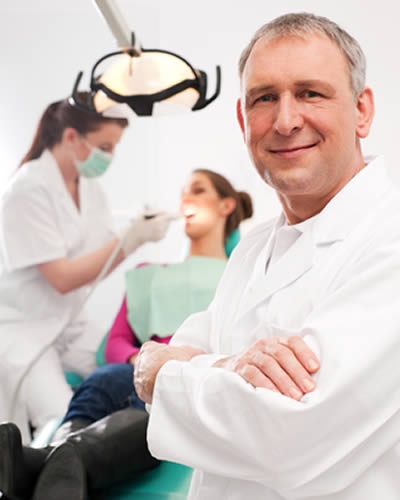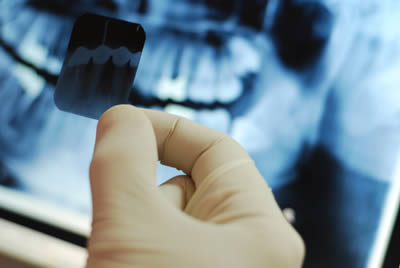What is Restorative Dentistry?
What is the Specialty of Restorative Dentistry?
Who can deliver Restorative Dentistry Specialist Services?
Where are Restorative Services provided?
What do Consultants in Restorative Dentistry offer?
---------------------------
What is the Specialty of Restorative Dentistry?
Restorative Dentistry evolved as a recognised speciality in 1973 and in the United Kingdom it is legally recognized as a specialty under European Union directive.
Since its inception, the speciality has seen significant changes and has developed in response to factors such as: increasing life expectancy; greater patient awareness and expectations; a widespread understanding of the need to prevent oral diseases developing and to maintain oral health; our ability to treat patients with more complex conditions, the increasing recognition of the importance of oral health for complex medical and surgical conditions and the more recent establishment of multi-disciplinary clinical teams.
In the future, further significant changes within health care systems and the increasing needs of the population will see an increasing demand and need for Restorative Dentistry services.
Restorative Dentistry is the study, diagnosis and integrated management of diseases of the oral cavity, the teeth and supporting structures. It includes the rehabilitation of the teeth and the oral cavity to functional, psychological and aesthetic requirements of the individual patient, including the co-ordination of multi-professional working to achieve these objectives.
Restorative dentistry encompasses the dental specialties of Endodontics, Periodontics and Prosthodontics (fixed and removable) and its foundation is based upon the interaction of these specialties in cases requiring complex, multi-faceted care.
Restorative Dentistry is sometimes referred to as ‘Oral Rehabilitation’ due to the increasing need for multidisciplinary and integrated care within and out with the speciality including Orthodontics, Oral and Maxillofacial Surgery, Paediatric Dentistry and Dental and Maxillofacial Radiology, due to the increasing complexity of oral health problems as people live longer.
The focus of the Restorative Dentistry speciality is to work with other dental, medical and surgical specialists and other clinical colleagues, to provide and support the integrated management and oral rehabilitation of patients with complex treatment needs, such as:
- Patients affected by developmental disorders such as hypodontia, cleft lip and palate, advanced periodontitis and amelogenesis imperfecta, who require multidisciplinary care as recommended by national guidance and peer assessment groups.
- Patients who have undergone radiotherapy and ablative surgery for the management of oral cancer.
- Patients who have had traumatic injuries to the face, mouth and teeth
- Patients who have sustained damage caused by periodontal (gum) disease, tooth decay, tooth attrition and acid erosion.
- Patients with severe medical and surgical problems to ensure the best treatment outcome.
Who can deliver Restorative Dentistry specialist services?
- Consultants
Consultants will have completed a competency based training programme the end point of which is determined by the completion of the Intercollegiate Specialty Fellowship Examination. A Consultant may also have a specific interest in one of the disciplines of Restorative Dentistry. The training covers a range of domains which include knowledge, clinical, management, communication and teaching and research with a significant proportion of time spent on clinical and management aspects including leadership, integrated team working and quality assurance. They will be on the Speciality List of the General Dental Council.
The care delivered to a patient is often delivered by a range of people, however as the complexity of care emerges leading to rising demand, the concept of managed clinical networks focussing on delivering optimal patient care using the team approach has arisen. These networks include a range of individuals involved in providing Restorative Dentistry care and is often chaired by a Consultant in Restorative Dentistry with dentists, specialists, dental care professionals and commissioners forming the membership to help ensure Restorative Dentistry Services are delivered effectively and appropriately within the funding constraints.
- Specialists
Specialists are usually experts within one of the disciplines of Restorative Dentistry (Periodontology, Prosthodontics, Endodontics) and will have developed competence in one of these areas by completion of at least 3 years of higher training within the Specialty. They will be on the Specialist List of the General Dental Council.
Where are Restorative Services provided?
Restorative Dentistry Services can be obtained in a number of settings which include:
- University Teaching Hospitals
- District General Hospitals
- Specialist Dental Practice
- General Dental Practice
- Community Dental Services
Hospital services have traditionally delivered care to patients who are referred from the community. As the demand for the Restorative Dentistry services has arisen, commissioners have looked at different ways of delivering care to meet patient needs and have commissioned specialist services within the community.
What do Consultants in Restorative Dentistry offer?
A Consultant in Restorative Dentistry has a similar role to that of consultants in the other medical and dental disciplines in the National Health Service. Accordingly he/she is responsible for managing the care of patients assisted by a team of junior staff, trainees and other dental care professionals.
They also integrate and liaise with other consultants within dentistry and medicine as part of a team in the overall care of the patient. The role is multifaceted and includes an advisory role as well provision of clinical care, education and research.
Consultants in Restorative Dentistry provide valuable and independent advice to patients and they are a unique group in that within primary care dentistry there are no other comparable groups with the necessary levels of training and expertise to provide advice and treatment to those patients needing advanced levels of care.



